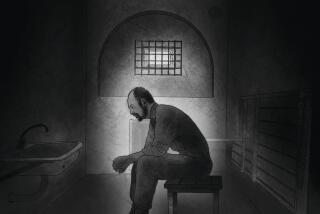Bedlam, Soviet Style
- Share via
For decades the Soviet Union has placed certain of its political prisoners in psychiatric hospitals and there subjected them to the most medically outrageous and ethically intolerable forms of abuse. Accounts by former prisoners have described in pitiable detail how sound minds often snapped under a regimen of deliberately inflicted physical and mental pain.
In 1983 the Soviet Union felt compelled to withdraw from the World Psychiatric Assn. rather than face possible suspension or expulsion for its distortions of psychiatry. Until very recently a number of Soviet mental hospitals were under the control of the Interior Ministry, meaning the secret police. Now those hospitals have apparently been transferred to the Ministry of Health. And now too, for the first time, Soviet citizens are beginning to hear officially, if only selectively, about some of the evils of Soviet psychiatric institutions.
The most detailed expose has come in Komsomolskaya Pravda, which writes that “there is lawlessness” behind the fence that has long shielded psychiatric practice from public scrutiny. The lawlessness, reports the paper, takes the form of arbitrary diagnosis and commitment, of corrupt doctors, of excessive medication and unhealthy living conditions. In describing such mistreatment, however, Komsomolskaya Pravda says nothing about the mistreatment of political prisoners in psychiatric hospitals. It focuses instead on ordinary Soviets, making clear that anyone committed to a psychiatric institution faces terrible treatment and conditions. Of the particular abuses inflicted on those locked up for political reasons it says nothing.
By keeping its silence on this point, Komsomolskaya Pravda is able to avoid pointing an accusatory finger at the KGB. By suggesting that Soviet psychiatry in general needs a thorough cleaning up, it dilutes the guilt that falls on those who have used drugs to inflict excruciating pain or severe mental disorientation on political prisoners. This descriptive approach is not wholly honest, but neither is it dishonest. The Soviet people now have official acknowledgement that terrible things have gone on in their country’s state-run mental institutions. What must come next is clear evidence of humane change, including specifically an end to the torture of political prisoners that has taken place in the name of psychiatry.
More to Read
Sign up for Essential California
The most important California stories and recommendations in your inbox every morning.
You may occasionally receive promotional content from the Los Angeles Times.












